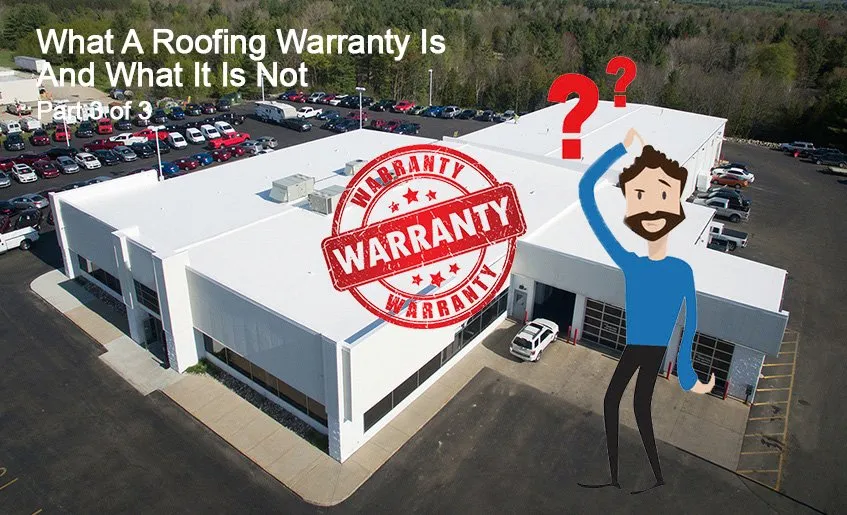Solutions Roofing Warranties Provide
A roof warranty will give all the details for possible actions you can take in case of a problem. Some remedies will be limited and only involve work that restores the roof to its watertight condition, which can mean simple patching. Issues like wood rot or damaged insulation are not likely to be taken care of. As far as the manufacturer is concerned, once the roof is leak free, the roof warranty provisions have been met.
In addition, some manufacturers have the right to decide if the damage will be covered or not and they can even charge you for the site visit should they deem they are not responsible. A roof warranty is a contract so you can negotiate the terms. This is the best way to remove some of the exclusions and clauses that are unreasonable. Just make sure all changes are agreed upon and authorized.
Important Things When Choosing a Roof Warranty
Roof warranties can help with significant issues and major damage, so they worth it. It is ideal to have both a manufacturer materials warranty and a roofing contractor warranty. Roofing contractor warranties are typically 5 years, as most installation issues appear within the first 3 years.
If there are any clauses insisting a roofing contractor be required to provide the maintenance work, this needs to be negotiated out of the contract. For asphalt-based roofing, make sure you have a rider that states the roofer has to fix blisters during the first 5 years. Many manufacturers exclude this from their roof warranty, so you want to make sure blister repairs are taken care of.
If the roofing you choose is designed to last for 20 years, the best warranty to get is a 15-year, labor, and materials, no dollar limit warranty (NDL). A roof warranty longer than 15 years will be expensive and more difficult to collect because of the normal wear, tear, and aging of a roof. Choose a roof warranty length based on the expected lifespan of the roofing system, but not one that goes beyond this.
Installation and Maintenance Makes a Big Difference
When you accept and acknowledge a shorter warranty, you accept that the roof warranty has little to do with the roof lifespan. Longer-lasting roofing is associated with having an experienced and reliable roofing engineer to design and oversee the installation. This also involves hiring a qualified and reputable roofing contractor to perform the work.
The National Roofing Contractors Association (NRCA) advises that to get a long-lasting, well-installed roof, you need to have an independent observer overseeing the entire process. When you have proper roof installation, roof maintenance, and experienced roofing professionals in place, chances are you will never have to use that roof warranty, and you’ll have peace of mind that the roofing will work as intended and last.
If you do decide to get a roof warranty for your roofing system be sure you read everything carefully and fully understand before you sign. You may even want to have a lawyer look over the contract to make sure you are fully aware of what will happen and what your responsibilities will be.

